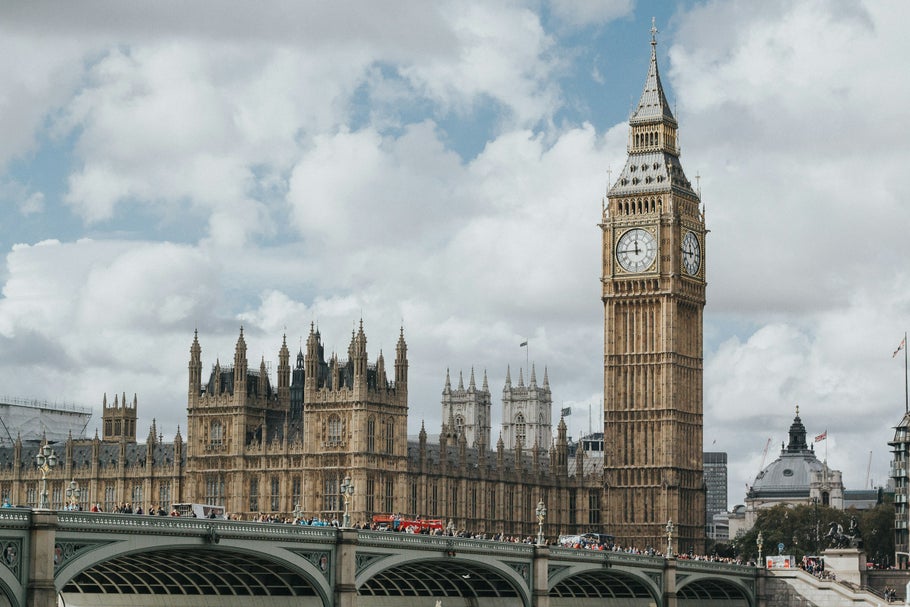What the key election manifestos might mean for your day nursery business
In this blog post, Courteney Donaldson, Managing Director – Childcare & Education at Christie & Co, considers the three main political parties’ manifestos ahead of the General Election on 4 July 2024. She focuses on early years, and how these key pledges may impact the sector in terms of provision and markets.
Business. Built around You.
Your expert business property advisers

Courteney Donaldson
Managing Director - Childcare & Education

Image: Marcin Nowak for Unsplash
THE CONSERVATIVE PARTY:
Manifesto: From September 2024, eligible parents of children between nine months and two years old will be able to access 15 hours of free childcare and, from September 2025, all eligible parents with children from nine months old to when they start school will be able to access 30 hours of free childcare a week.
Response: This is a positive step for parents, and, in recent months, we have seen providers starting to create wait lists for parents seeking provision from this September, however, shortfalls in funding prevail, and no insights into forward-looking funding formula mechanisms, nor commitments to linking funding increases to inflation, have been forthcoming. An initiative introduced without consultation which, if sufficiently funded, in tandem with wider workforce initiatives, awards prospects for positivity, if funding levels meet the costs of delivery along with providing sufficient headroom for ongoing investments into quality, resources, staff development, training and qualifications support.
THE LABOUR PARTY:
Manifesto: Over 3,000 new nursery classes across England to open up access to childcare hours for families. Spare school classrooms will be converted into high-quality spaces for nurseries.
Response: As experienced education providers are only too acutely aware, high-quality provision comes at a cost and, as a starting point, conversion costs cited in creating these new nursery classes (330-£40k per setting) seem woefully inadequate. More concerningly, however, is the risk of the duplication of services, and the wider impact this expansion in schools could have on the continuity of care for children and providers as a whole, lest we forget the impact that new provision had when children’s centres and NNIs opened, and the workforce crisis that then ensued.
THE LIBERAL DEMOCRATS:
Manifesto: Families, children and young people: while acknowledging every child deserves the best possible start in life an opportunity to flourish no matter what their background or personal circumstances and in acknowledging that flexible, affordable childcare and early is education is a critical part of our economic infrastructure.
Response: The manifesto, to the best of my reading, has no substantive pledges specifically focusing on early education with the exception of a pledge to appoint a cabinet minister for children and young people.
OVERVIEW:
Looking ahead, post the General Election on 4 July, whichever party finds themselves in government, I would urge them to put the child at the centre of all decisions they make, and those decisions should be made via collaboration with wider stakeholders – parents and providers. As a starting point, I would encourage them to read NDNA’s Blueprint for Early Education and Care report which was circulated at the Conservative and Labour party conferences in Autumn 2023.
The early years of a child’s life are critical, and significantly influence not only their individual outcomes but the outcomes of our society as a whole, encompassing social justice, social mobility, education, health, and social care. It is, therefore, imperative that the Government puts children at the heart of every discussion, strategy and action, thus enabling every child to have the best possible start in life.
The Blueprint report puts forward a compelling vision for the future of early education and care and outlines 10 key recommendations that resonate deeply with Christie & Co’s commitment to foster and support excellence in provision across the nation's early years education and care sector.
The call for a national commission to comprehensively review the purpose, structure,
funding, and regulation of early education and care is both timely and necessary. Such a commission, akin to the historic Royal Commissions of the past, would bring together the voices of parents, practitioners, policy experts, and the wider community. By seeing past political cycles and focusing on evidence-based, consensus-driven recommendations, we can craft a resilient and enduring strategy for early years, creating a strong foundation for every child.
The Blueprint’s report’s emphasis on a child-centric policy framework is commendable. Ensuring that the wellbeing and interests of children and families are at the heart of early years policies is a fundamental principle. Engaging with parents and carers as stakeholders, promoting high-quality learning environments, and addressing barriers to accessing early years support are all vital steps toward achieving this goal.
Changing public perceptions through language and curriculum adjustments is another crucial aspect of the report. Shifting from ‘childcare’ to ‘early education and care’ in government guidance and introducing neurodevelopment into the National Curriculum will create an equitable standing for the sector alongside primary and secondary education.
Addressing funding and infrastructure challenges is equally imperative. An annual review of the cost of delivering high-quality early education and care and the adequate provision of funding to meet those costs is essential to ensure the sector remains sustainable. Furthermore, implementing a universal, fully-funded childcare system, coupled with targeted support for those in need, can level the playing field for families and providers.
At Christie & Co, we have worked closely with providers across the UK for decades, extending our reach in recent years to support providers and policymakers across the globe.
Many of the sector’s challenges are the same in other countries. The next government has the chance to set our nation apart, by creating a solutions-based strategy for the sector which has the potential to shape the outcomes for early years, for this generation and future generations.
The Blueprint report provides a comprehensive roadmap, and the beginning of solutions, for transforming early education and care. It also offers ministers and policymakers an opportunity to collaborate in forming a strategy that looks past the election cycle to create a framework with a longer-term time frame that can improve future generations’ outcomes.
NDNA’s Blueprint report, which we, at Christie & Co, were incredibly proud to support, facilitates the opportunity for all stakeholders, from policymakers to practitioners, to embrace these recommendations and work together to create a more inclusive, equitable sector and my wish for the future is that whichever party finds itself elected ensures that children are at the heart of the discussions, decisions and policy decisions going forward.
To discuss the day nursery market in more detail, contact Courteney: courteney.donaldson@christie.com / +44 7831 099 985